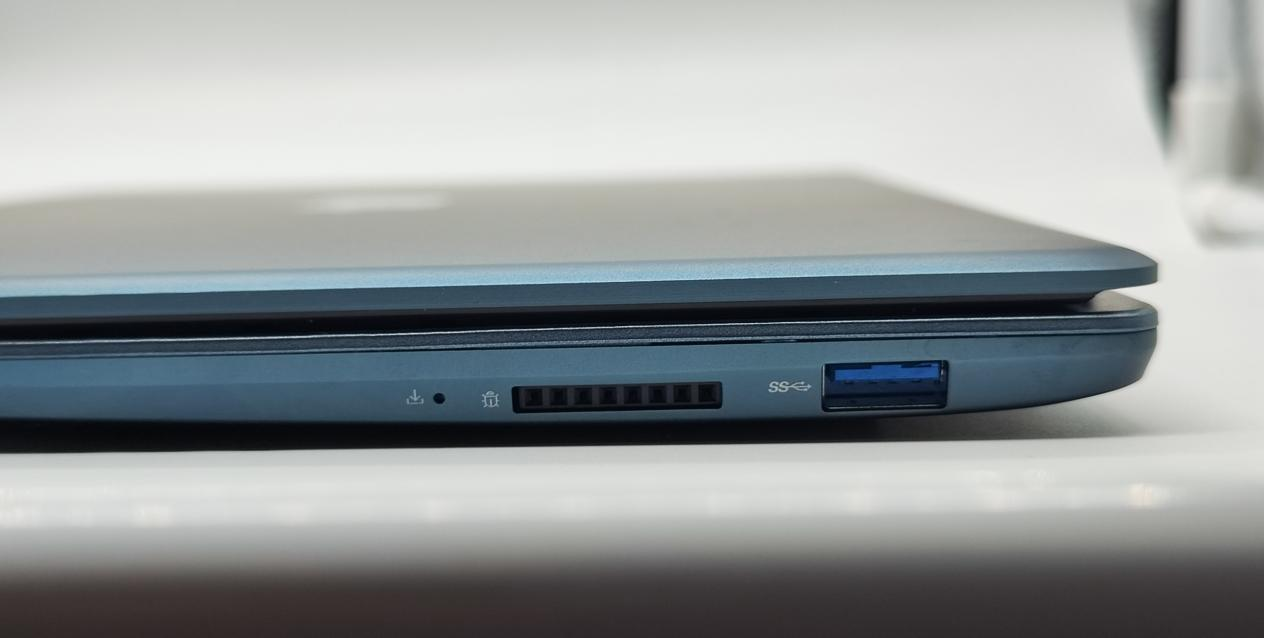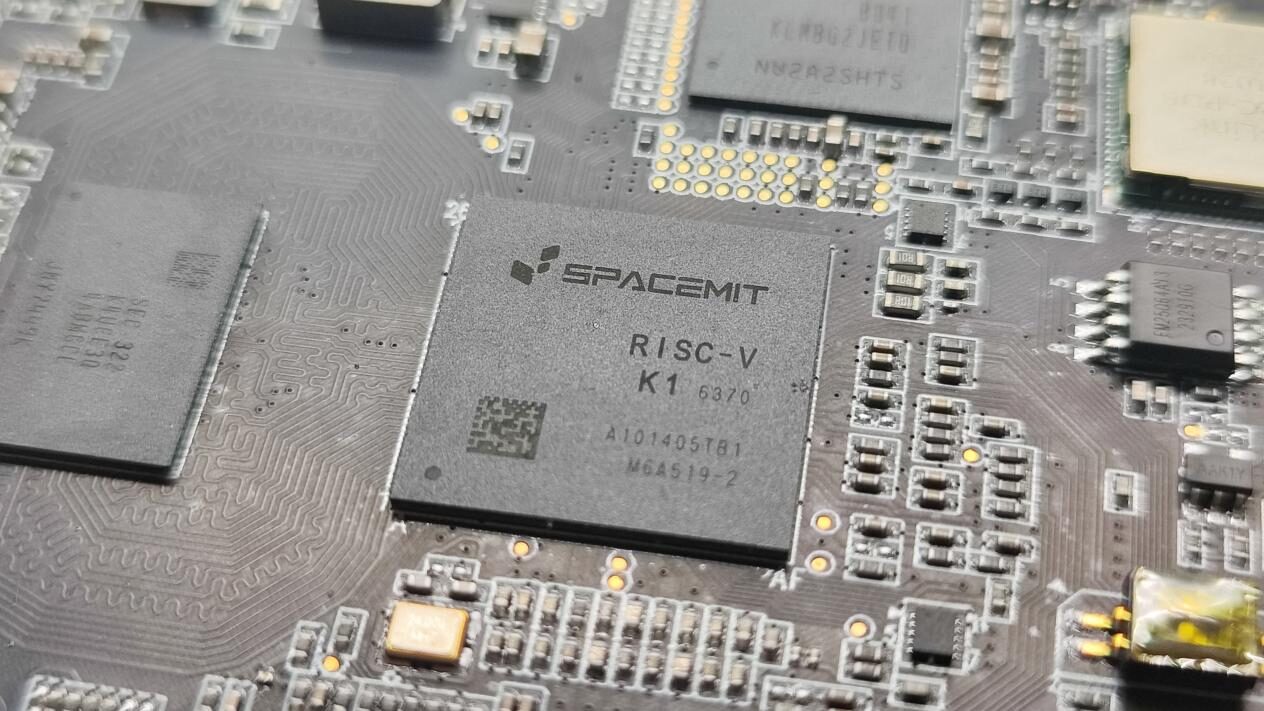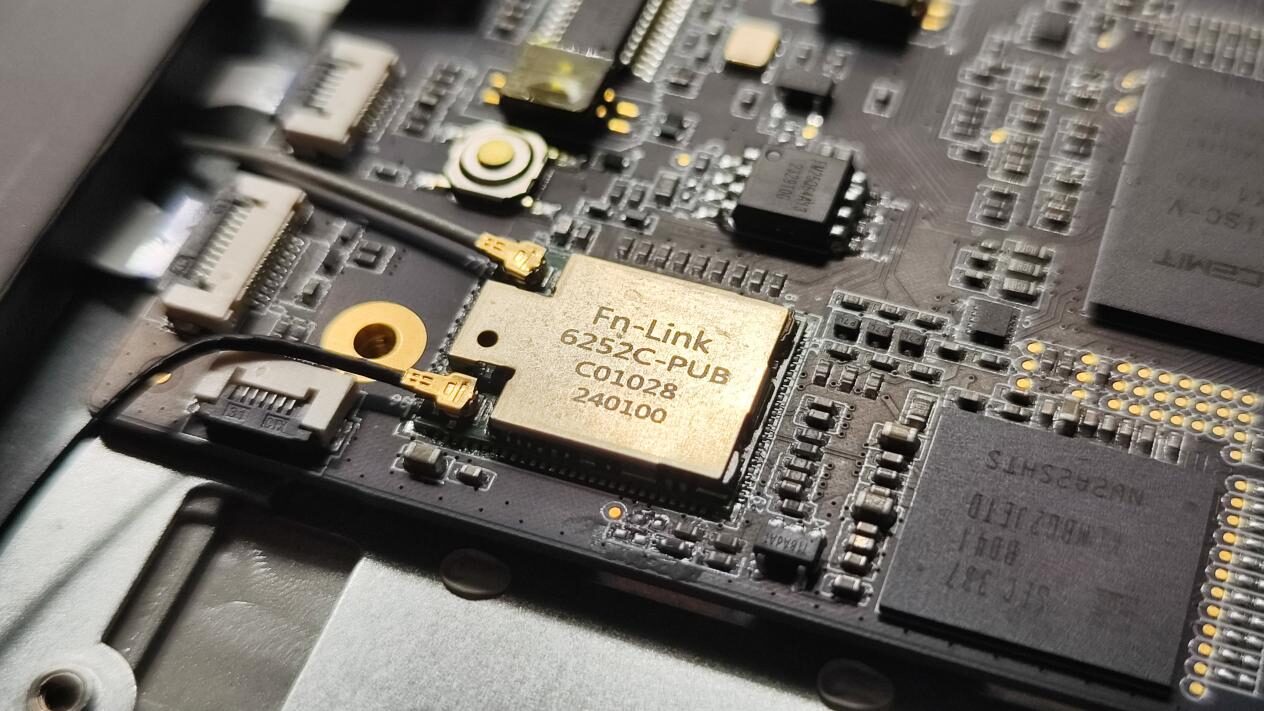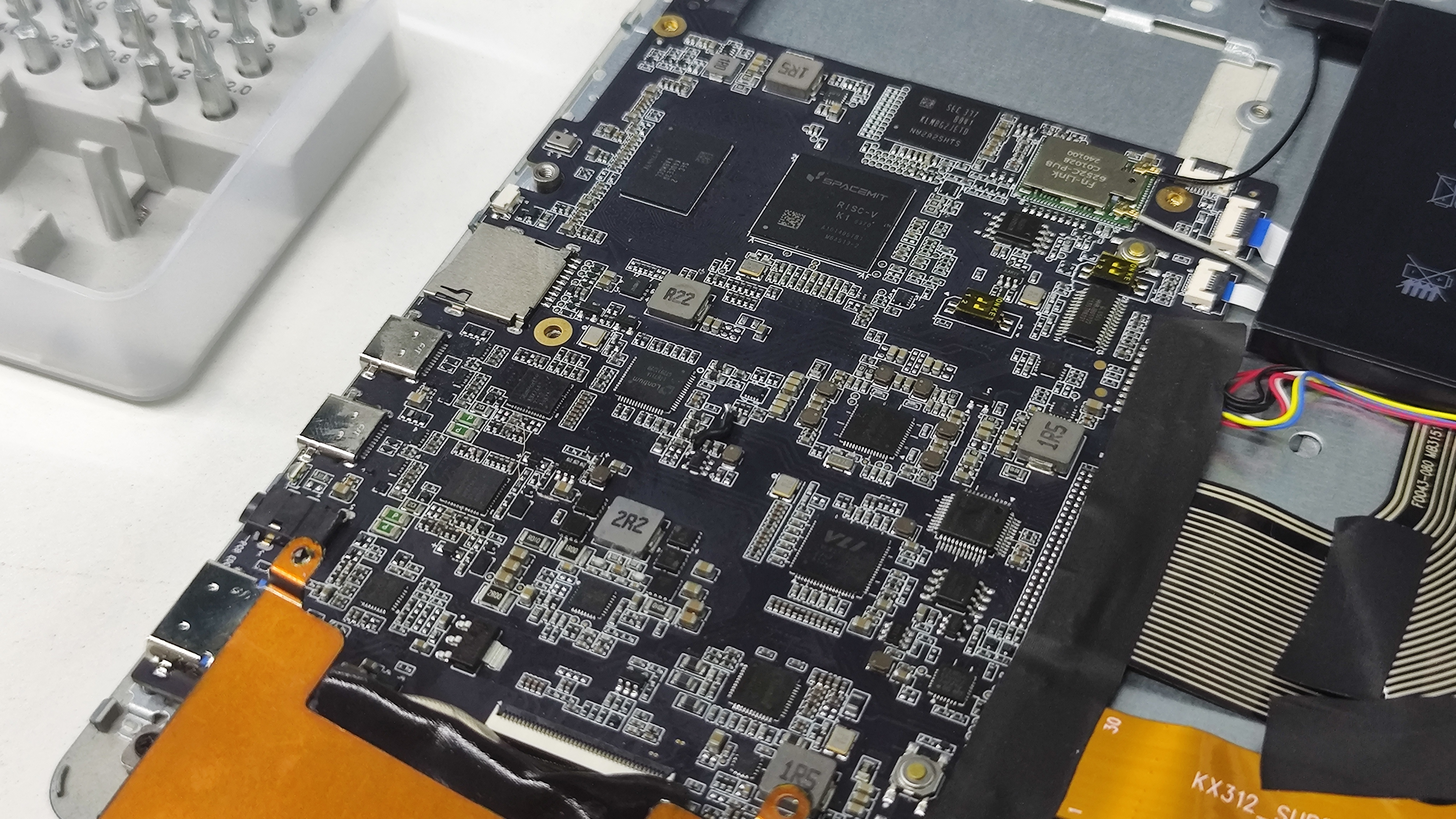
Chinese startup SpacemiT has unveiled its next computer, a laptop based on the K1 octa-core RISC-V chip. It is not exactly a standard laptop, but the MuseBook, as it’s called, has features and capabilities aimed at hardware engineers, developers, and DIY enthusiasts. While no official launch date is available, it’s expected to be available soon at a relatively low price of $300.
The MuseBook looks vaguely like an Apple MacBook, primarily from the printed name at the bottom of its display bezel. A 14.1-inch IPS panel with a 1920 x 1080 resolution and 60Hz refresh rate is standard. The keyboard is more akin to Windows machines, but the dedicated Windows button has been replaced by a RISC-V button. There’s no news yet on what function that button might provide since the unit provided to CNX Software would not power on.



The laptop weighs in at 1.3kg and is approximately 18mm thick. It provides a MicroSD card slot, two USB-C ports, two USB 3.0 Type-A ports, a 3.5mm headphone jack, and an 8-pin header with pins for power, multiplexed I2C, UART, PWM, GPIO, and more. The full specifications for the K1 SoC are listed below:
The laptop's storage includes up to 128GB of onboard eMMC flash memory, M.2 NVMe SSD options up to 1TB, and a MicroSD card slot. The K1 RISC-V System-on-a-Chip (SoC) is configured with up to 16GB of LPDDR4X RAM. Wireless networking connectivity is available via the installed RTL8852BE-based WiFi 6 module.



The MuseBook runs Bianbu OS, an operating system based on Debian and optimized for the K1 RISC-V SoC. Presumably, it will include common office software such as LibreOffice and the Chromium browser. It will also include optimized OpenCV, OpenBLAS, Slam Eigen, libpng, libjpeg, XNNPACK, and other algorithm libraries for development purposes.
If preferred, you can also install the Linux flavor of your choice or RTOS on the laptop. Of course, finding RISC-V packages in standard repositories might prove problematic.
Of course, this isn’t the first RISC-V laptop to come to market. We’ve reviewed the Sipeed Lichee Console 4A in the past, and there’s also the ROMA laptop. However, the K1 is the first RISC-V SoC to comply with the RISC-V Foundation’s RVA22 and 256-bit RVV 1.0 standards. While not exactly blazing fast compared to, for example, the Intel Core Ultra CPU, SpacemiT’s K1 SoC does provide 2 TOPS of AI computing power.







